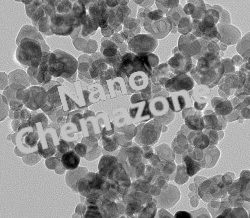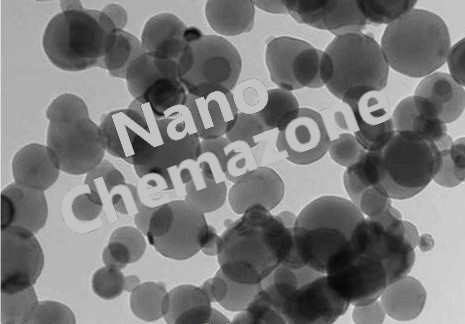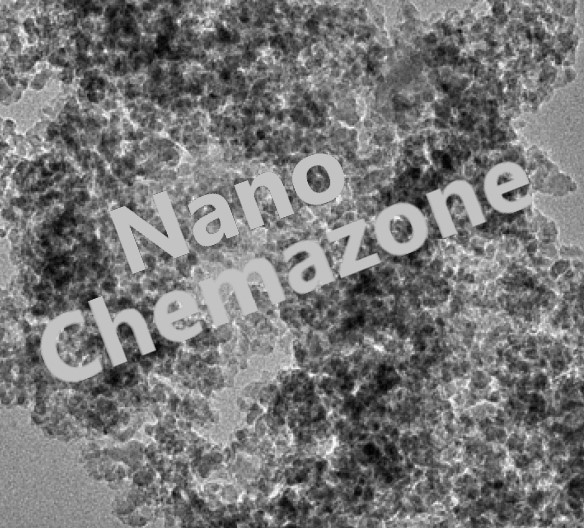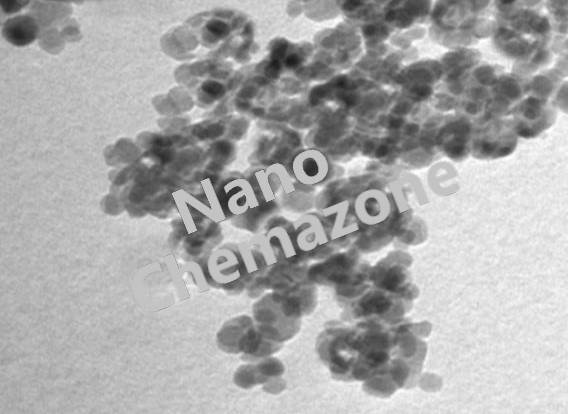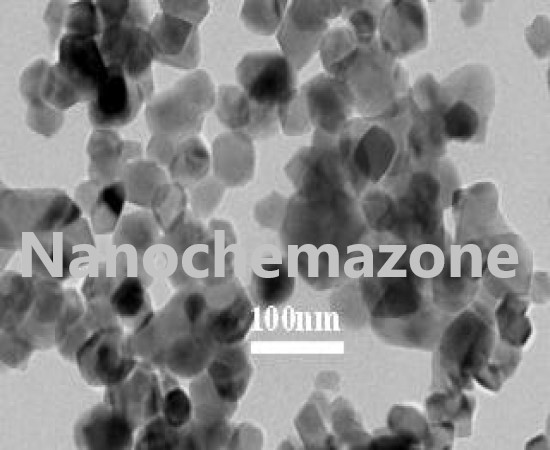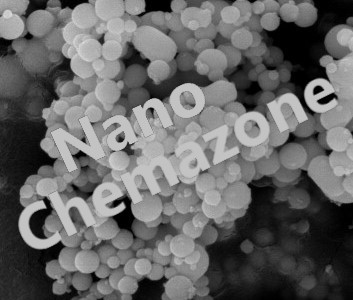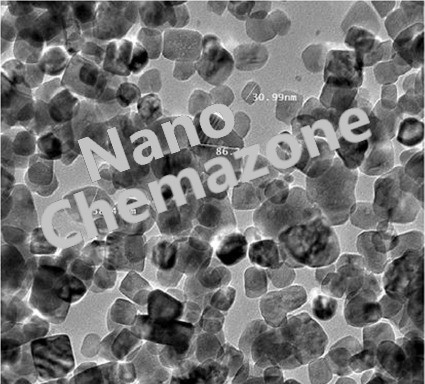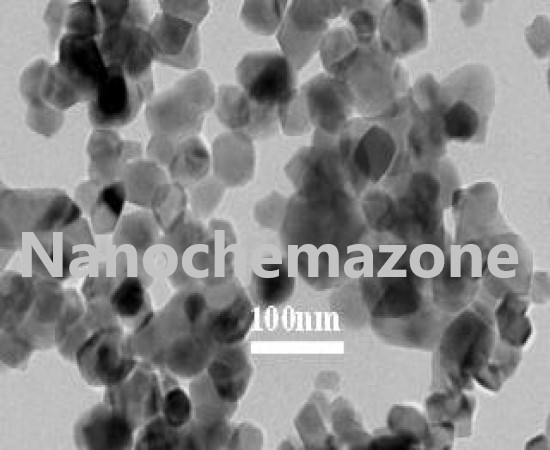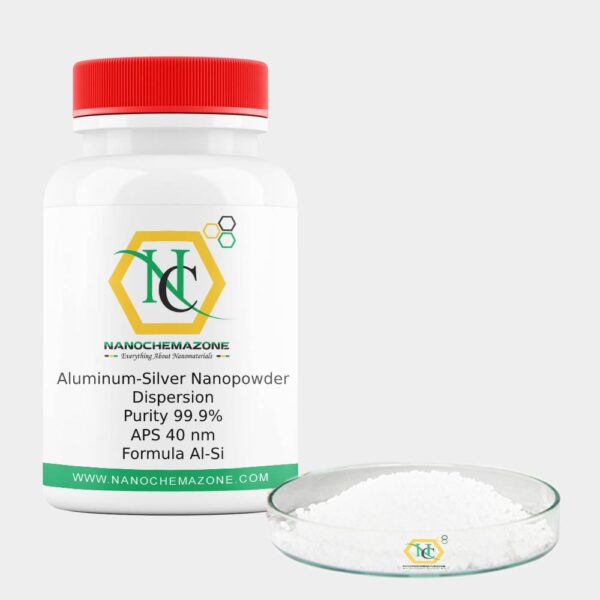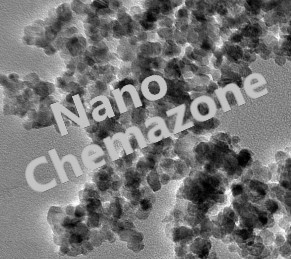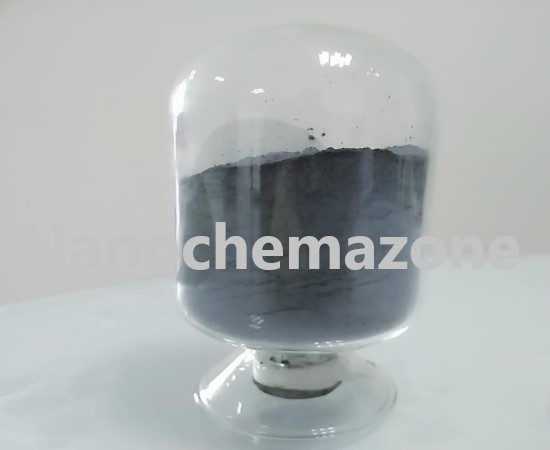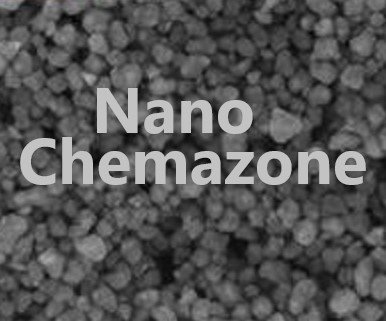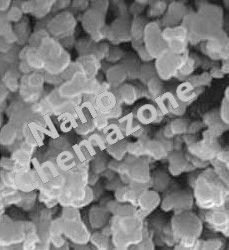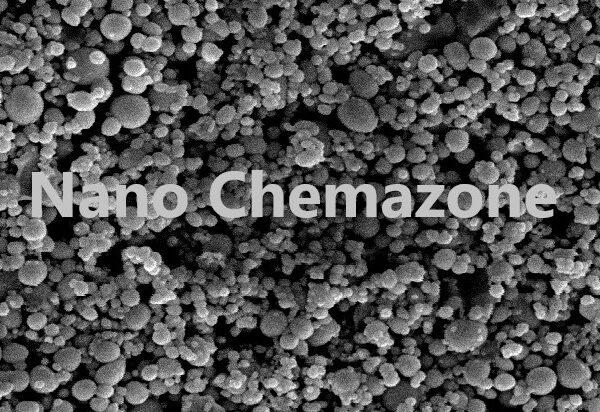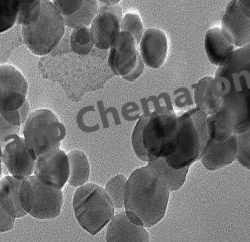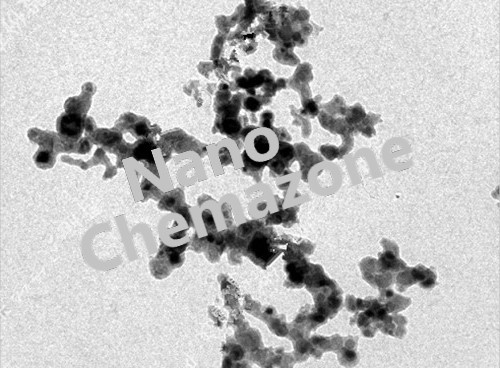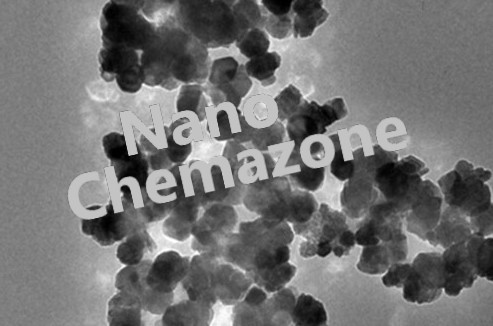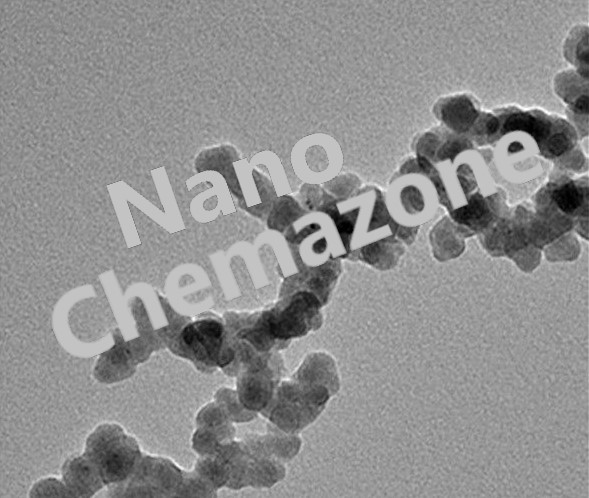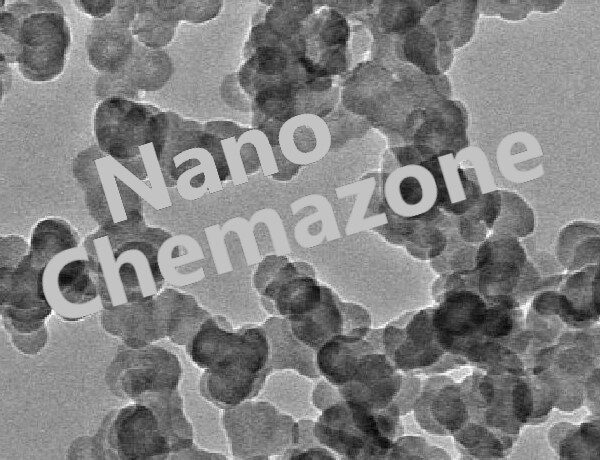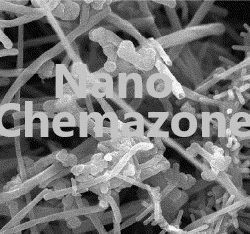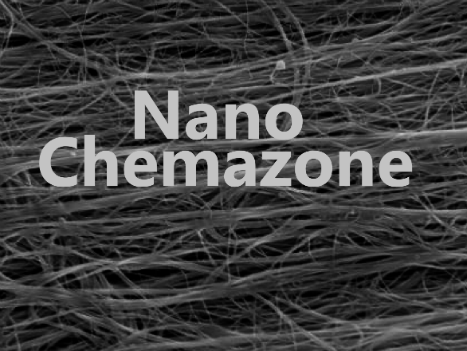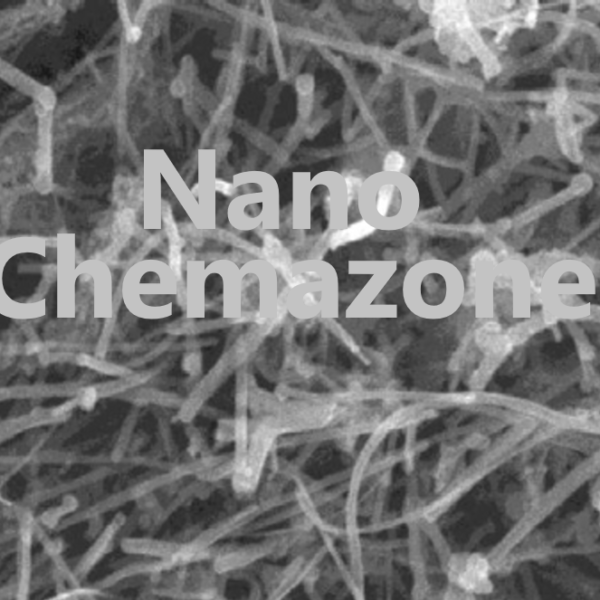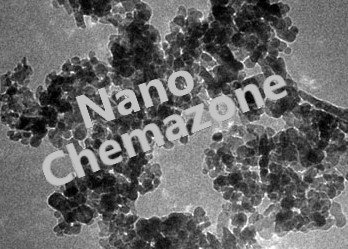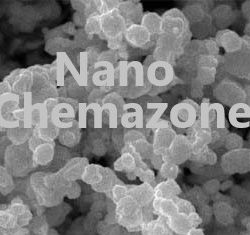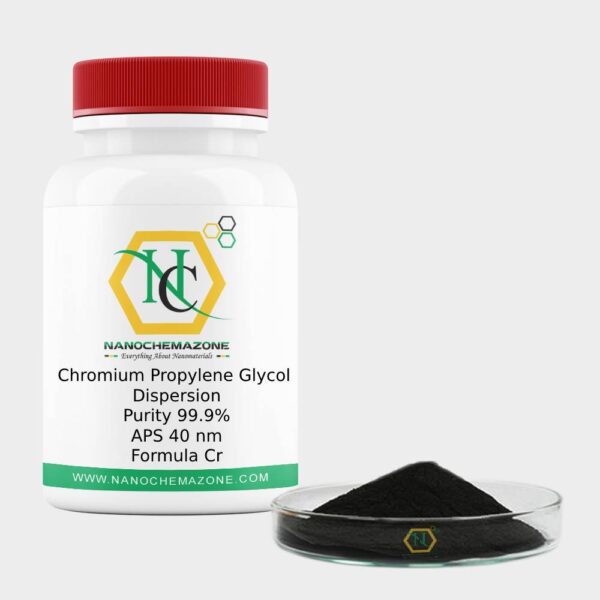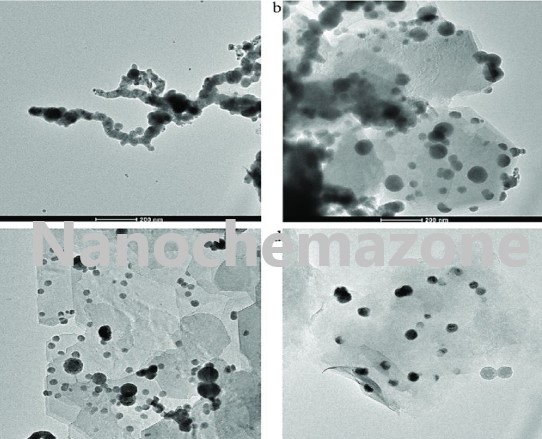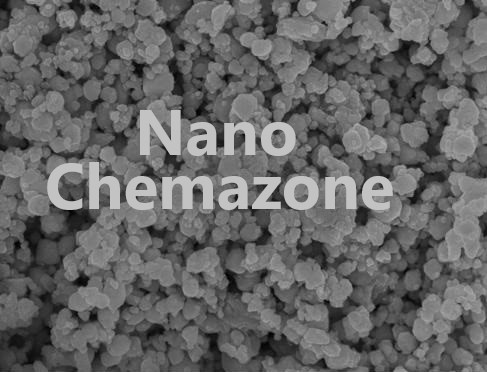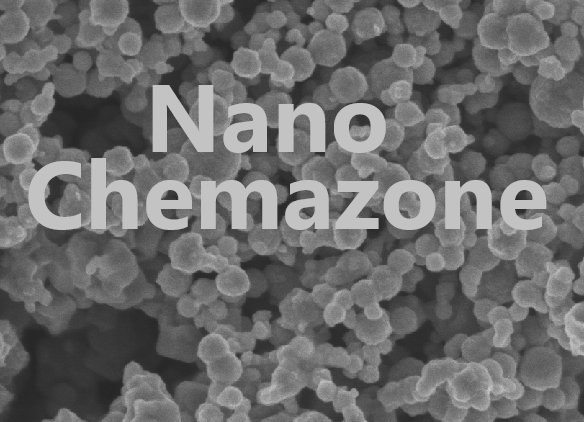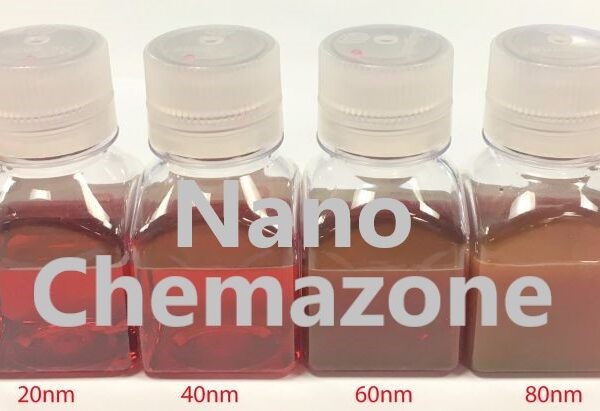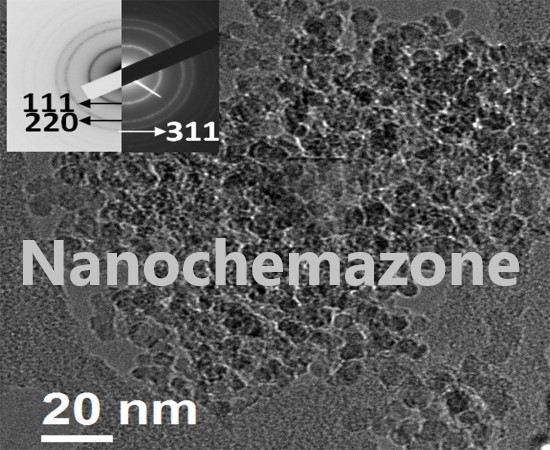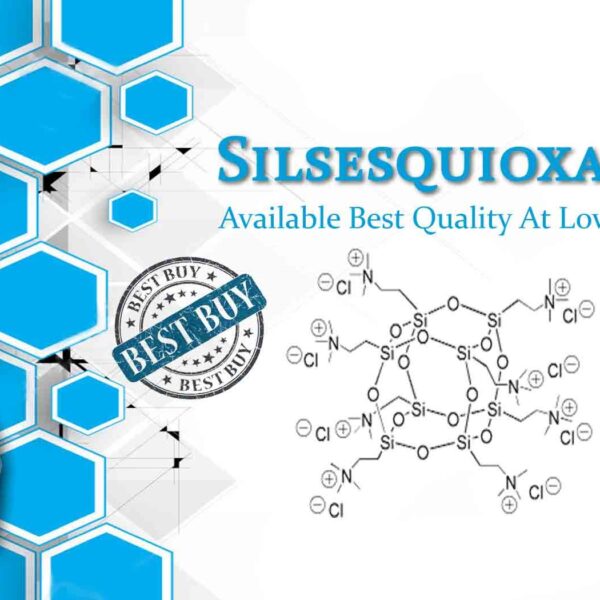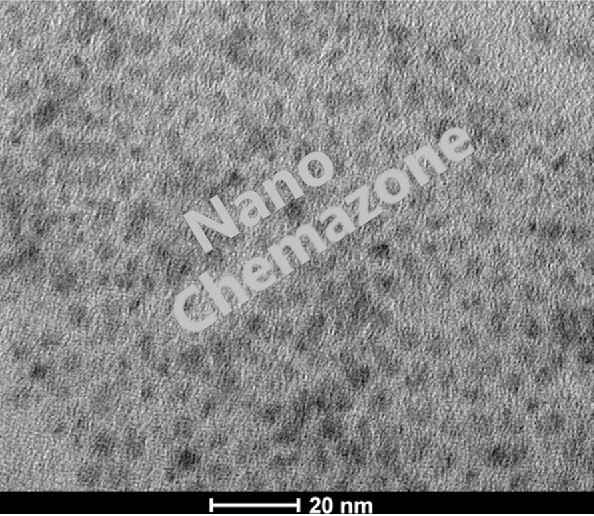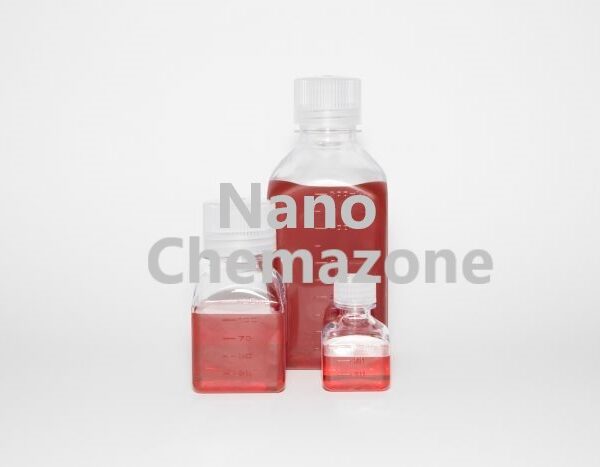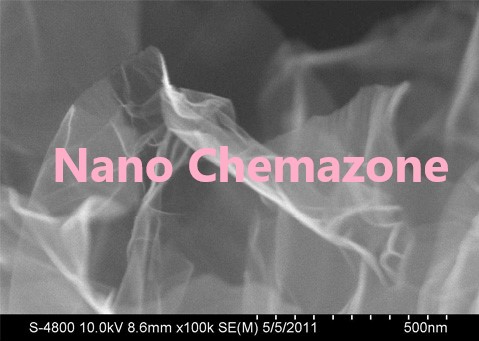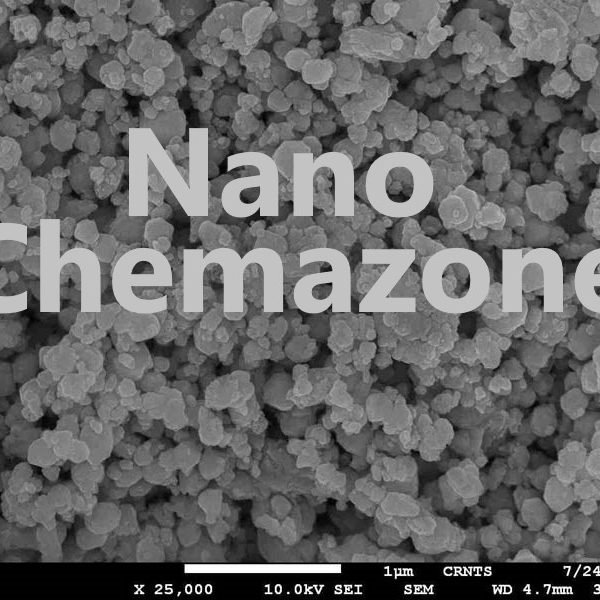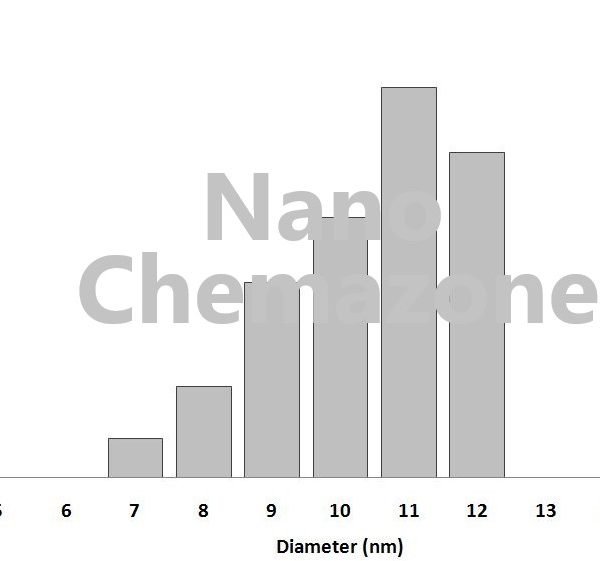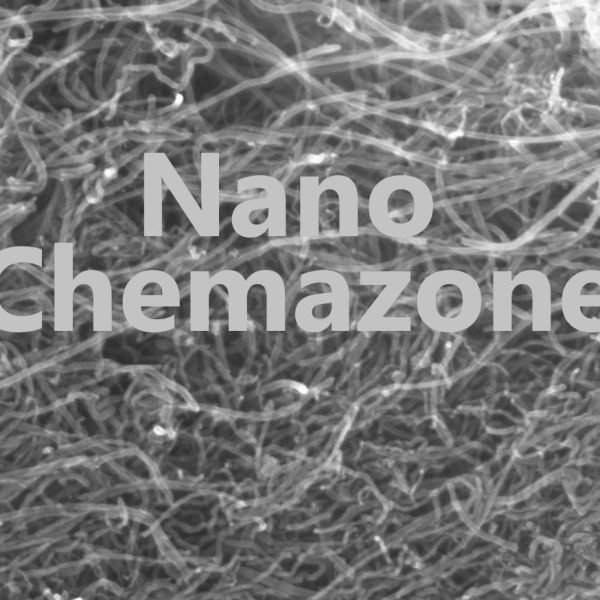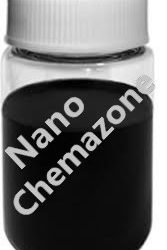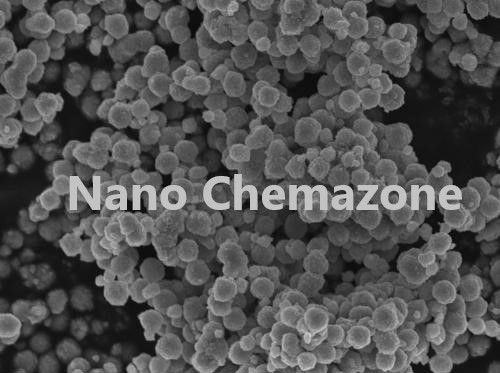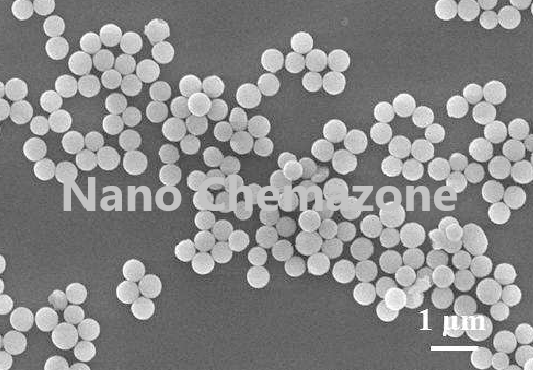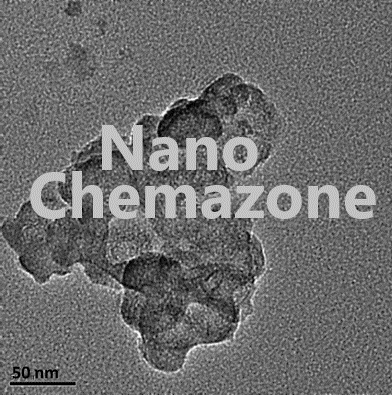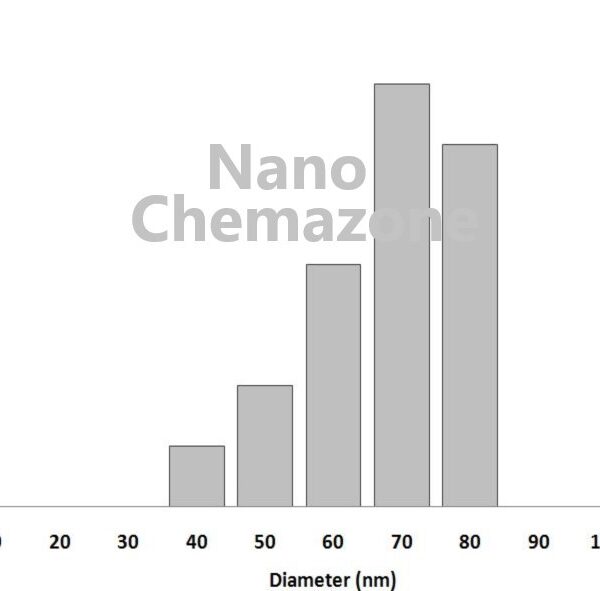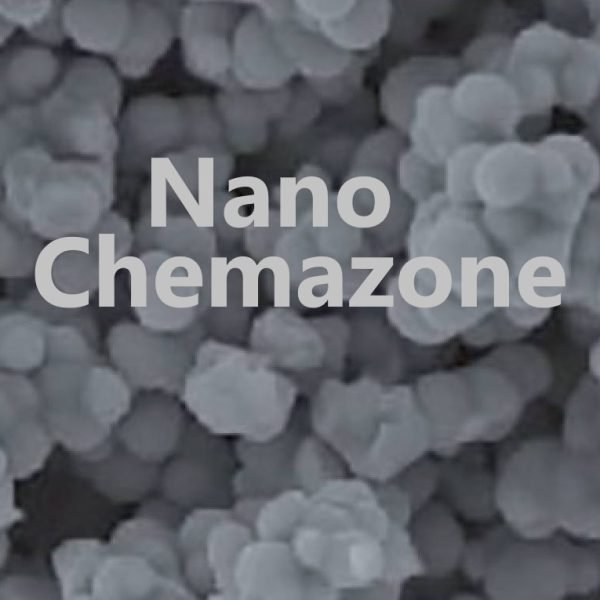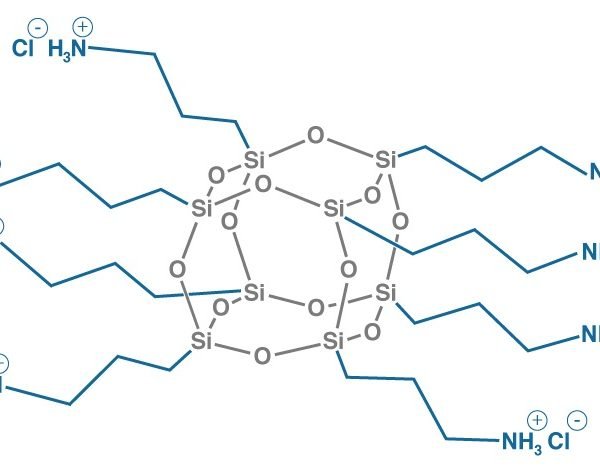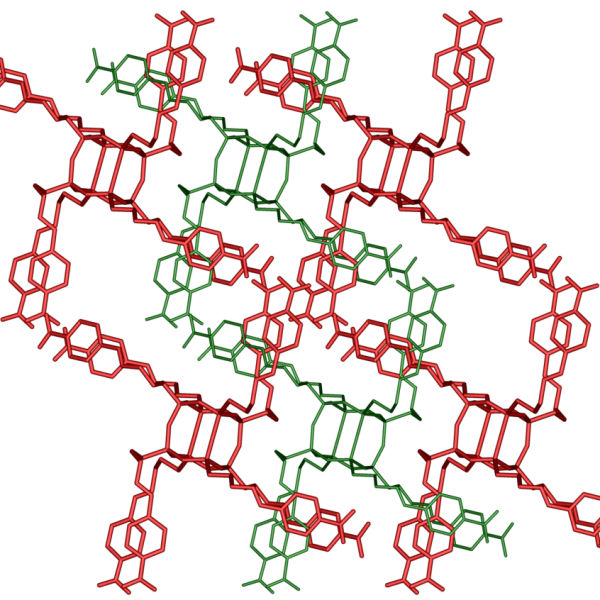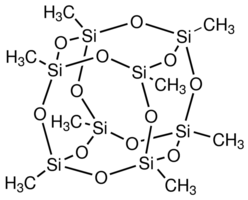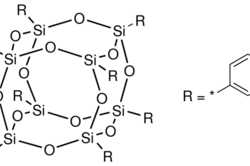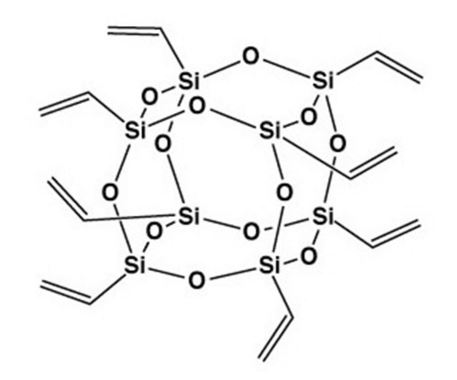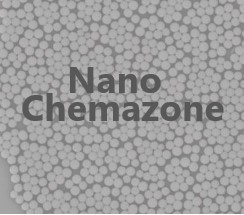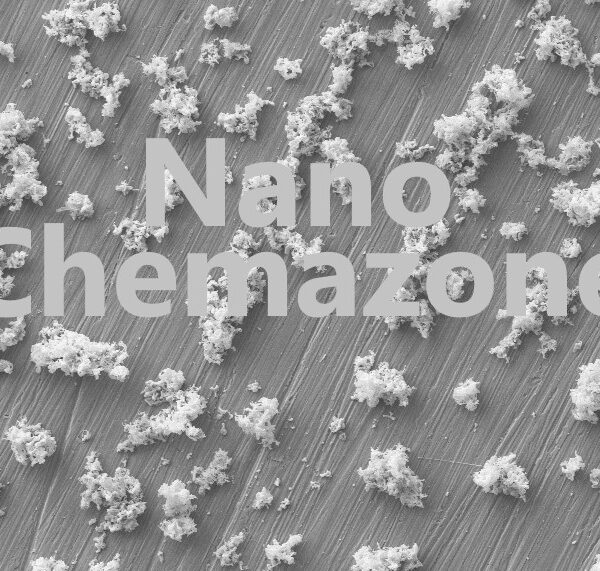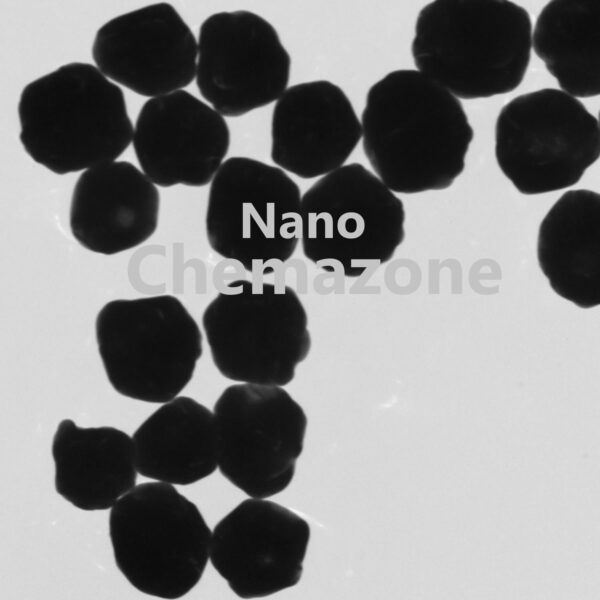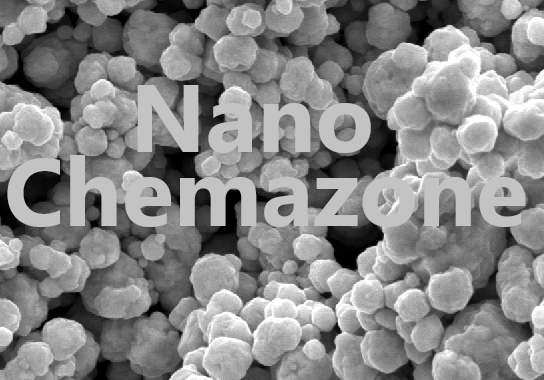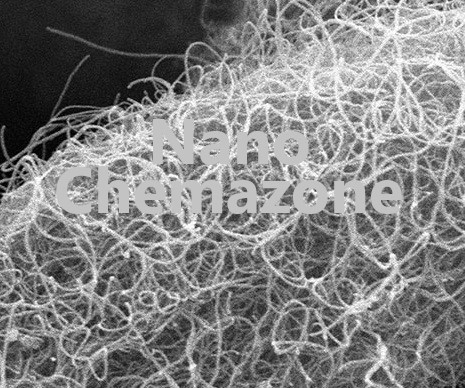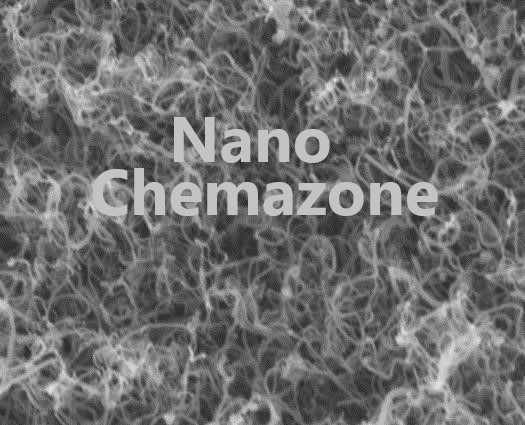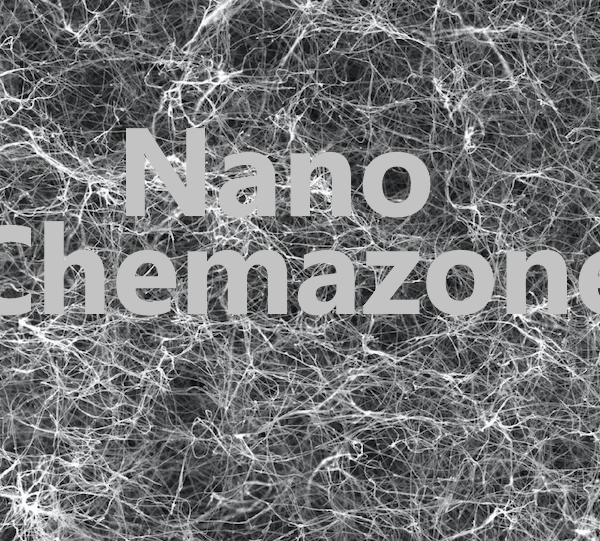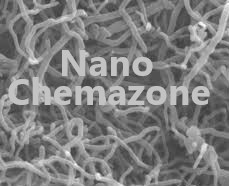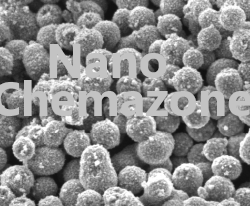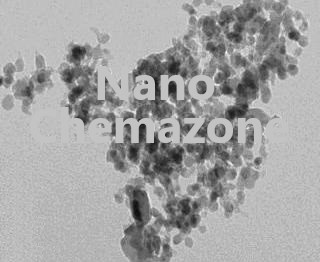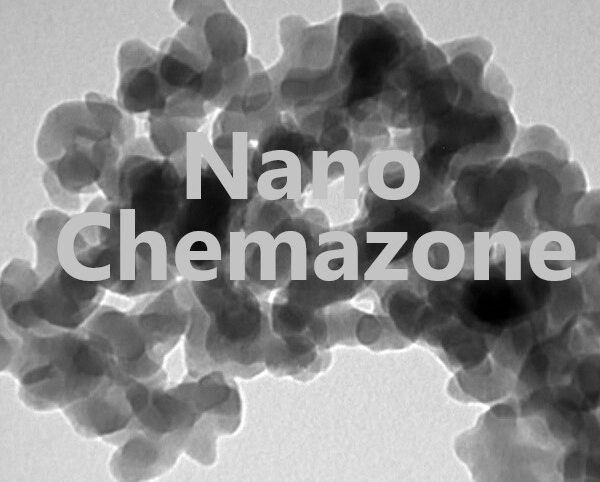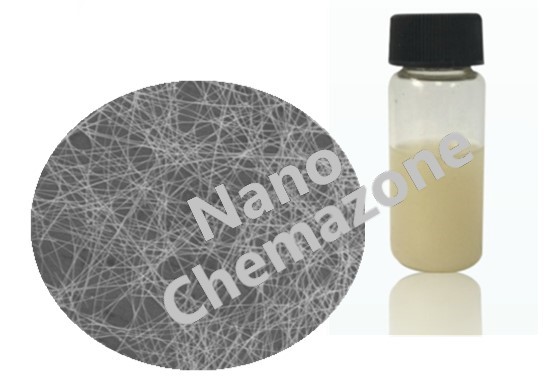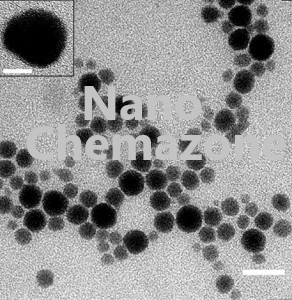Dispersions Nano & Micro

Ag Nanoparticles Aqueous Dispersion
Product Name: Ag Nanoparticles Aqueous Dispersion
| Product | Ag Nanoparticles Aqueous Dispersion |
| CAS No. | 7440-22-4 |
| Appearance | Gray Powder |
| Purity | 99.9% |
| APS | 30 nm (Can be customized) |
| Ingredient | Ag |
| Product Code | NCZ-NSC414/20 |
Silver Ag Dispersion Description :
There are many ways silver nanoparticles can be synthesized; one method is through monosaccharides. This includes glucose, fructose, maltose, maltodextrin, etc., but not sucrose.
Ag Nanoparticles Aqueous Dispersion is also a simple method to reduce silver ions back to silver nanoparticles as it usually involves a one-step process. There have been methods that indicated that these reducing sugars are essential to the formation of silver nanoparticles.
Many studies indicated that this method of green synthesis, specifically using Cacumen platycladi extract, enabled the reduction of silver. Additionally, the size of the nanoparticle could be controlled depending on the concentration of the extract. Ag Nanoparticles Aqueous Dispersion that the higher concentrations correlated to an increased number of nanoparticles.
Smaller nanoparticles were formed at high pH levels due to the concentration of the monosaccharides. Another method of silver nanoparticle synthesis includes the use of reducing sugars with alkali starch and silver nitrate.
The reducing sugars have free aldehyde and ketone groups, which enable them to be oxidized into gluconate. The monosaccharide must have a free ketone group because to act as a reducing agent it first undergoes tautomerization. Besides, if the aldehydes are bound, it will be stuck in cyclic form and cannot act as a reducing agent.
For example, glucose has an aldehyde functional group that can reduce silver cations to silver atoms and is then oxidized to gluconic acid. The reaction for the sugars to be oxidized occurs in aqueous solutions.
The capping agent is also not present when heated.The growth of nanoseeds involves placing the seeds into a growth solution. The growth solution requires a low concentration of a metal precursor, ligands that will readily exchange with preexisting seed ligands, and a weak or very low concentration of reducing agent. The reducing agent must not be strong enough to reduce metal precursors in the growth solution in the absence of seeds.
Otherwise, the growth solution will form new nucleation sites instead of growing on preexisting ones (seeds). Growth is the result of the competition between surface energy (which increases unfavorably with growth) and bulk energy (which decreases favorably with growth).
The balance between the energetics of growth and dissolution is the reason for uniform growth only on preexisting seeds (and no new nucleation). Growth occurs by the addition of metal atoms from the growth solution to the seeds, and ligand exchange between the growth ligands (which have a higher binding affinity) and the seed ligands.
The range and direction of growth can be controlled by nano speed, the concentration of metal precursor, ligand, and reaction conditions (heat, pressure, etc.). Controlling stoichiometric conditions of growth solution controls the ultimate size of the particle. For example, a low concentration of metal seeds to metal precursors in the growth solution will produce larger particles.
Capping agent has been shown to control the direction of growth and thereby shape. Ligands can have varying affinities for binding across a particle. Differential binding within a particle can result in dissimilar growth across particles. This produces anisotropic particles with nonspherical shapes including prisms, cubes, and rods.
Silver Ag Dispersion Related Information
Storage Conditions: Airtight sealed, avoid light and keep dry at room temperature. Please contact us for customization and price inquiry Email: contact@nanochemazone.com Note: We supply different size ranges of Nano and micron as per the client’s requirements and also accept customization in various parameters.Alumina Dispersion
| MF: | Al |
| Chemical Name: |
Nano Alumina Dispersion |
| Purity: | > 99.99% |
| APS: | 15-30 nm (Size Customization possible) |
| Form: | Nanodispersion |
| Product Number: | NCZD1301 |
| CAS Number | 1344-28-1 |
Alumina Slurry Polishing
Alumina Slurry Polishing
Alumina Slurry Polishing (Al2O3, Purity: 99.9 %, APS: 50-80 nm)| Product | Alumina Slurry Polishing |
| CAS | 1344-28-1 |
| Product Number | NCZ-D-1501N |
| APS | 50-80 nm (Size Customization is possible) |
| Purity | 99.9% |
| Form | Liquid |
| Colour | White |
| pH value | 4-5 |
| Concentration | 10 wt% to 40% (Available as per Customer requirement) |
| Dispersing Agent | Organic Solvent (DMF), IPA Ethanol, Toluene, Water (H2O) |
| Available Quantities | 10 ml, 50 ml, 100 ml, 250 ml, and larger Industrial quantities |
Aluminium Oxide Dispersion
| MF: | Al2O3 |
| Chemical Name: |
Aluminium Oxide Dispersion |
| Purity: | >99.99% |
| APS: | 20-30 nm (Size Customization possible) |
| Form: | Nanodispersion |
| Product Number: | NCZD1401 |
| CAS Number | 1344-28-1 |
Aluminum Hydroxide Nanoparticles Dispersion
Aluminum Hydroxide Nanoparticles Dispersion
Product Name: Aluminum Hydroxide Nanoparticles Dispersion
| Product | Aluminum Hydroxide Nanoparticles Dispersion |
| CAS No. | 21645-51-2 |
| Appearance | White |
| Purity | 99.9% |
| APS | 10 nm (Can be customized) |
| Ingredient | Al(OH)3 |
| Product Code | NCZ-NSC463/20 |
Aluminum Hydroxide Dispersion
Aluminum hydroxide also finds use as a fire retardant filler for polymer applications in a similar way to magnesium hydroxide and hydromagnesite. It decomposes at about 180 °C, absorbing a considerable amount of heat in the process and giving off water vapor. In addition to behaving as a fire retardant, Aluminum Hydroxide Nanoparticles Dispersion is very effective as a smoke suppressant in a wide range of polymers, most especially in polyesters, acrylics, ethylene vinyl acetate, epoxies, PVC, rubber. The major other uses of Aluminum Hydroxide Nanoparticles Dispersion is as a feedstock for the manufacture of other aluminum compounds: specialty calcined aluminas, aluminum sulfate, polyaluminium chloride, aluminum chloride, zeolites, sodium aluminate, activated alumina, aluminum nitrate. Annual production is some 100 million tonnes, over 90% of which is converted to aluminum oxide (alumina) which is used in the manufacture of aluminum metal; Pharmacologically, this compound is used as an antacid under names such as Alu-Cap, Aludrox or Pepsamar. The Aluminum Hydroxide Nanoparticles Dispersion reacts with excess acid in the stomach, reducing its acidity.Aluminum Hydroxide Dispersion Related Product
Alumina Al2O3 Spherical Powder / Aluminum Oxide Spherical Powder Alpha, 800nm Alumina Al2O3 Powder / Aluminum Oxide Powder Alpha, 500nm, 800nm, 1000nm Aluminum Oxide Nanopowder / Nanoparticles (Al2O3, alpha, 99+%, 80 nm) Aluminum Oxide Nanopowder / Nanoparticles (Al2O3, alpha, High Purity 99.9%, 135nm) Aluminum Oxide Nanopowder / Nanoparticles (Al2O3, alpha, High Purity 99.9%, 200nm) Aluminum Oxide Nanopowder / Nanoparticles (Al2O3, alpha, High Purity 99.9%, 300nm) Alpha Aluminum Oxide Nanoparticles Coated with Aluminic Ester Aluminum Oxide Nanopowder / Nanoparticles (Al2O3, gamma, 99.99%, 5nm) Aluminum Oxide Nanopowder / Nanoparticles (Al2O3, gamma, 99+%, 20nm) Aluminum Oxide (Al2O3) Nanopowder / Nanoparticles (Al2O3, gamma, 99.5% 80nm) Alumina Nanoparticles (Al2O3, 80% alpha / 20% gamma, 99.9%, 50nm) Alumina Nanoparticles (Al2O3, 50% alpha / 50% gamma, 99.9%, 50nm) Alumina Nanoparticles (Al2O3, 20% alpha / 80% gamma, 99.9%, 50nm) Alumina Nanoparticles (Al2O3, Amorphous, 50nm, Al2O3 93wt%, H2O 6-7wt%) Aluminum Hydroxide Al(OH)3 Nanopowder / Nanoparticles (Al(OH)3, 99.9%, 10nm) Aluminum Hydroxide Al(OH)3 Nanopowder / Nanoparticles (Al(OH)3, 99.9%, 50nm) Aluminum Hydroxide Al(OH)3 Nanopowder / Nanoparticles (Al(OH)3, 99.9%, 100nm)Aluminum Hydroxide Dispersion Related Information
Storage Conditions: Airtight sealed, avoid light, and keep dry at room temperature. Please contact us for customization and price inquiry Email: contact@nanochemazone.com Note: We supply different size ranges of Nano and micron as per the client’s requirements and also accept customization in various parameters.Aluminum Oxide Nanopowder Dispersion
Aluminum Oxide Nanopowder Dispersion
Aluminum Oxide Nanopowder Dispersion
| Product | Aluminum Oxide Dispersion |
| CAS No. | 1344-28-1 |
| Appearance | White |
| Purity | 99.9% |
| APS | 30 nm (Can be customized) |
| Ingredient | Al2O3 |
| Product Code | NCZ-NSC484/20 |
Aluminum Oxide Nanopowder Dispersion Description
Aluminum Oxide Dispersion is used in numerous engineering and scientific applications in industry for both porosity and strength. Honeycombs are most often an array of hollow hexagonal cells with thin vertical walls. Sheets of metal can be placed on the top and bottom of the honeycomb to create a strong flat surface.
Nanochemazone specializes in producing Aluminum Oxide as low-density permeable material. Most Honeycombs are produced from cast ingots for use in coating and thin film Chemical Vapor Deposition (CVD).
Physical Vapor Deposition (PVD) processes including Thermal and Electron Beam (E-Beam) Evaporation, Low-Temperature Organic Evaporation, Atomic Layer Deposition (ALD), Organometallic.
Chemical Vapor Deposition (MOCVD) for specific applications such as fuel cells and solar energy. Thickness can range from 0.003" to approximately 2mm for all metals.
Some metals can also be rolled down as thin as 0.001" for use as an evaporation source in microelectronics, optics, magnetics, MEMS, and hard resistant coatings. The geometric structure of aluminum oxide honeycomb allows for the minimization of material used thus lowering weight and cost. The honeycomb pattern has a high strength-to-weight ratio.
Aluminum Oxide Dispersion using crystallization, solid-state, and other ultra high purification processes such as sublimation. Nanochemazone specializes in producing custom compositions for commercial and research applications and new proprietary technologies.
Aluminum Oxide Related Peoduct
Aluminum Oxide Nanopowder / Nanoparticles (Al2O3, alpha, 99+%, 80 nm)
Aluminum Oxide Nanopowder / Nanoparticles (Al2O3, alpha, High Purity 99.9%, 135nm)
Aluminum Oxide Nanopowder / Nanoparticles (Al2O3, alpha, High Purity 99.9%, 200nm)
Aluminum Oxide Nanopowder / Nanoparticles (Al2O3, alpha, High Purity 99.9%, 300nm)
Alpha Aluminum Oxide Nanoparticles Coated with Aluminic Ester
Aluminum Oxide Nanopowder / Nanoparticles (Al2O3, gamma, 99.99%, 5nm)
Aluminum Oxide Nanopowder / Nanoparticles (Al2O3, gamma, 99+%, 20nm)
Aluminum Oxide (Al2O3) Nanopowder / Nanoparticles (Al2O3, gamma, 99.5% 80nm)
Alumina Nanoparticles (Al2O3, 80% alpha / 20% gamma, 99.9%, 50nm)
Alumina Nanoparticles (Al2O3, 50% alpha / 50% gamma, 99.9%, 50nm)
Alumina Nanoparticles (Al2O3, 20% alpha / 80% gamma, 99.9%, 50nm)
Alumina Nanoparticles (Al2O3, Amorphous, 50nm, Al2O3 93wt%, H2O 6-7wt%)
Aluminum Hydroxide Al(OH)3 Nanopowder / Nanoparticles (Al(OH)3, 99.9%, 10nm)
Aluminum Hydroxide Al(OH)3 Nanopowder / Nanoparticles (Al(OH)3, 99.9%, 50nm)
Aluminum Hydroxide Al(OH)3 Nanopowder / Nanoparticles (Al(OH)3, 99.9%, 100nm)
Aluminum Oxide (Al2O3) Nanopowder / Nanoparticles Water Dispersion (Al2O3 Alpha, 20wt%, 30nm)
Aluminum Oxide Nanopowder Ethanol Dispersion (Al2O3, Alpha, 20wt% in Ethanol, 80nm-1000nm)
Aluminum Oxide Nanopowder NMP Dispersion (Al2O3, Alpha, 20wt% in NMP, 80nm-1000nm)
Aluminum Oxide Nanopowder Mineral Oil Dispersion (Al2O3, Alpha, 20wt% in Mineral Oil, 80nm-1000nm)
Aluminum Oxide (Al2O3) Nanopowder / Nanoparticles Water Dispersion (Al2O3 Gamma, 20wt%, 10nm)
Aluminum Oxide (Al2O3) Nanopowder / Nanoparticles Water Dispersion (Al2O3 Gamma, 20wt%, 30nm)
Aluminum Oxide (Al2O3) Nanoparticles Dispersion in 2-Propanol (Gamma 15nm 10wt%)
Aluminum Oxide (Al2O3) Nanoparticles Dispersion in 1, 2-Propanediol (Gamma 15nm 20wt%)
Aluminum Oxide (Al2O3) Nanoparticles Dispersion in Ethylene Glycol (Gamma 15nm 20wt%)
Aluminum Oxide Nanoparticles Ethanol Dispersion (Al2O3, Gamma, 20wt% in Ethanol, 5-80nm)
Aluminum Oxide Nanoparticles NMP Dispersion (Al2O3, Gamma, 20wt% in NMP, 5-80nm)
Aluminum Oxide Nanoparticles Mineral Oil Dispersion (Al2O3, Gamma, 20wt% in Mineral Oil, 5-80nm)
Aluminum Hydroxide Al(OH)3 Nanoparticles 20wt% Water Dispersion, 99.9%, 10nm
Aluminum Hydroxide Al(OH)3 Nanoparticles 20wt% Ethanol Dispersion, 99.9%, 10nm
Aluminum Oxide Dispersion Related Information
Storage Conditions:
Airtight sealed, avoid light, and keep dry at room temperature.
Please contact us for customization and price inquiry
Email: contact@nanochemazone.com
Note: We supply different size ranges of Nano and micron as per the client’s requirements and also accept customization in various parameters.
Aluminum Powder Dispersion
| MF: | Al |
| Chemical Name: |
Aluminum powder Dispersion |
| Purity: | >99.99% |
| APS: | 80 nm (Size Customization possible) |
| Form: | Nanodispersion |
| Product Number: | NCZD101 |
| CAS Number | 7429-90-5 |
Aluminum Toluene Dispersion
| MF: | Al |
| Chemical Name: |
Aluminium Toluene Dispersion |
| Purity: | >99.99% |
| APS: | 80 nm (Size Customization possible) |
| Form: | Nanodispersion |
| Product Number: | NCZD201 |
| CAS Number | 7429-90-5 |
Aluminum Zinc Oxide Nanopowder Dispersion
Aluminum Zinc Oxide Nanopowder Dispersion
| Product | Aluminum Zinc Oxide Nanopowder Dispersion |
| CAS No. | 1314-13-2 |
| Appearance | White |
| Purity | 99.9% |
| APS | 15nm (Can be customized) |
| Ingredient | Al2O5Zn2 |
| Product Code | NCZ-NSC461/20 |
Aluminum Zinc Oxide Nanopowder Dispersion
Aluminum Zinc Oxide Nanopowder DispersionZinc Oxide Nanopowder Dispersions are suspensions of zinc oxide nanoparticles in water. Nanochemazone manufactures oxide nanopowders and nanoparticles with typical particle sizes ranging from 10 to 200nm and in coated and surface functionalized forms. Our nanodispersion and nanofluid experts can provide technical guidance for selecting the most appropriate particle size, solvent, and coating material for a given application. We can also produce custom nanomaterials tailored to the specific requirements of our customers upon request. Please request a quote above to receive pricing information based on your specifications.
Aluminum Zinc Oxide Nanopowder Related Product
Indium Tin Oxide (ITO) Nanopowder / Nanoparticles (ITO, In2O3:SnO2=95:5, 99.99+%, 20-70nm) ITO Nanopowder / Nanoparticles Water Dispersion (ITO, In2O3:SnO2=90:10, 99.99+%, 20-70nm, 20wt%) ITO Nanopowder / Nanoparticles Water Dispersion (ITO, In2O3:SnO2=95:5, 99.99%, 20-70nm, 20wt%) ITO Nanopowder / Nanoparticles Ethanol Dispersion (ITO, In2O3:SnO2=90:10, 99.99+%, 20-70nm, 20wt%) ITO Nanopowder / Nanoparticles Ethanol Dispersion (ITO, In2O3:SnO2=95:5, 99.99%, 20-70nm, 20wt%) ITO Nanoparticles / Nanopowder (Indium Tin Oxide 90:10, 18nm, Blue Color) ITO Nanopowder / Nanoparticles (Indium Tin Oxide 95:5, 18nm, Blue Color) ITO Nanoparticles / Nanopowder Water Dispersion (Indium Tin Oxide 90:10, 18nm, 20wt%, Blue Color) ITO Nanopowder / Indium Tin Oxide Nanoparticles Water Dispersion (ITO 95:5, 18nm, 20wt%, Blue Color) ITO Nanoparticles / Nanopowder Ethanol Dispersion (Indium Tin Oxide 90:10, 18nm, 20wt%, Blue Color) ITO Nanoparticles / Nanopowder Ethanol Dispersion (Indium Tin Oxide 95:5, 18nm, 20wt%, Blue Color) Indium Oxide (In2O3) Nanopowder / Nanoparticles (In2O3, High Purity, 99.995%, 20-70 nm) Indium Hydroxide In(OH)3 Nanopowder / Nanoparticles (In(OH)3, high purity, 99.99+%, 20-70 nm) Antimony Tin Oxide Nanopowder / Nanoparticles (ATO, SnO2:Sb2O3=90:10, 30nm, high purity, 99.95+%) Antimony Tin Oxide Nanoparticles / Antimony Tin Oxide Nanopowder (ATO, Laser Synthesis, 8nm, 99.99%) Antimony Tin Oxide Nanopowder / Nanoparticles Water Dispersion (ATO, SnO2:Sb2O3=90:10, 20 wt%, 20nm) Antimony Tin Oxide Nanoparticles / ATO Nanopowder Ethanol Dispersion (SnO2:Sb2O3=90:10, 20wt%, 20nm) AZO - Zinc Oxide Nanopowder Doped with 1-5wt% Aluminum (AZO, 300, 500, 1000nm) AZO - Zinc Oxide Nanoparticles Doped with 2wt% Aluminum (AZO, 15nm, high purity 99.99+%) AZO Nanoparticles / AZO Nanopowder Water Dispersion (AZO, 15nm, 20wt%) How to disperse Nanoparticles? Nanoparticles Surfactant / Nanopowder DispersantAluminum Zinc Oxide Nanopowder Dispersion Related Information
Storage Conditions: Airtight sealed, avoid light, and keep dry at room temperature. Please contact us for customization and price inquiry Email: contact@nanochemazone.com Note: We supply different size ranges of Nano and micron as per the client’s requirements and also accept customization in various parameters.Aluminum-Silver Nanopowder Dispersion
Aluminum Silver Nanopowder Dispersion
| Product | Aluminum Silver Nanopowder Dispersion |
| CAS No. | 7429-90-5/ 7440-21-3 |
| Appearance | White Powder |
| Purity | 99.9% |
| APS | 40 nm (Can be customized) |
| Ingredient | Al-Si |
| Product Code | NCZ-NSC440/20 |
Aluminum-Silver Nanopowder Dispersion Description :
Nanofluids have novel properties that make them potentially useful in many applications in heat transfer, including microelectronics, fuel cells, pharmaceutical processes,
Hybrid-powered engines, engine cooling/vehicle thermal management, domestic refrigerator, chiller, heat exchanger, in grinding, machining, and in boiler flue gas temperature reduction.
They exhibit enhanced thermal conductivity and the convective heat transfer coefficient compared to the base fluid. Knowledge of the rheological behavior of nanofluids is found to be critical in deciding their suitability for convective heat transfer applications.
Nanofluids also have special acoustical properties and in ultrasonic fields display additional shear-wave reconversion of an incident compressional wave; the effect becomes more pronounced as concentration increases.
An analysis such as computational fluid dynamics, nanofluids can be assumed to be single-phase fluids. However, almost all new academic papers use a two-phase assumption. The classical theory of single-phase fluids can be applied, where the physical properties of nanofluid are taken as a function of properties of both constituents and their concentrations. An alternative approach simulates nanofluids using a two-component model.
Aluminum Silver Nanopowder Dispersion spreading of a nanofluid droplet is enhanced by the solid-like ordering structure of nanoparticles assembled near the contact line by diffusion.
Which gives rise to a structural disjoining pressure in the vicinity of the contact line. However, such enhancement is not observed for small droplets with a diameter of nanometer scale, because the wetting time scale is much smaller than the diffusion time scale.
Aluminum Silver Nanopowder Dispersion Related Information
Storage Conditions: Airtight sealed, avoid light and keep dry at room temperature. Please contact us for customization and price inquiry Email: contact@nanochemazone.com Note: We supply different size ranges of Nano and micron as per the client’s requirements and also accept customization in various parameters.Antimony Tin Oxide Dispersion
| MF: | ATO |
| Chemical Name: |
Antimony Tin Oxide Dispersion |
| Purity: | >99.99% |
| APS: | 20-80 nm (Size Customization possible) |
| Form: | Nano dispersion |
| Product Number: | NCZD1501 |
| CAS Number | 128221-48-7 |
Antimony Tin Oxide Nanopowder Dispersion
Antimony Tin Oxide Nanopowder Dispersion
| Product | Antimony Tin Oxide Nanopowder Dispersion |
| CAS No. | 12673-86-8 |
| Appearance | Black Powder |
| Purity | 99.9% |
| APS | 20nm(Can be customized) |
| Ingredient | SnO2 |
| Product Code | NCZ-NSC460/20 |
Antimony Tin Oxide Nanopowder Dispersion
Antimony Tin Oxide Nanopowder Dispersion used in LCD, LED, and ECD. Transparent electrode and solar battery. Antimony Tin Oxide Nanopowder Dispersion can shield heat when it is used in a hot mirror, building, or glass curtain wall.
Antimony Tin Oxide Nanopowder Dispersion can be used in the glass of the car, train, and plane to protection against fog and frost. Due to the decline of the microwave, ATO Nanoparticles can be used in the computer room and radar shielding and protecting area where needs to shield electromagnetic wave.
The product of ATO Nanoparticles has an excellent quality of electricity and optics. Due to its good conductivity, ATO Nanoparticles can be widely used in the industry of coating, chemical fiber, and polymeric membrane as anti-static material.
ATO Nanoparticle has more advantaged properties in dispersion, weather-ability, thermoplastic, wear resistance, and security than some other conductive materials such as graphite, surfactant, and metallic powder, etc.
Nanopowder of ATO can also be used in the field of optoelectronic display devices, transparent electrode, solar battery, liquid crystal display, catalysis, and other industries with its advantages.
Antimony Tin Oxide Dispersion Related Information
Storage Conditions: Airtight sealed, avoid light, and keep dry at room temperature. Please contact us for customization and price inquiry Email: contact@nanochemazone.com Note: We supply different size ranges of Nano and micron as per the client’s requirements and also accept customization in various parameters.Barium Sulfate Dispersion
| MF: | BaSO4 |
| Chemical Name: | Barium Sulfate |
| Purity: | > 99.99% |
| APS: | 200-500 nm (Size Customization possible) |
| Form: | Nanodispersion (Water, IPA, Ethanol) |
| Product Number: | NCZ-D-001004 |
| CAS Number | 7727-43-7 |
Bismuth Oxide Dispersion
| Product | Bismuth Oxide Dispersion |
| CAS | 1304-76-3 |
| Product Number | NCZ-D-1502N |
| APS | < 1µm |
| Purity | 99% |
| Molecular Formula | Bi2O3 |
| Form | Liquid |
| Molecular Weight | 465.96 g/mol |
| Concentration | 10 wt% |
| Solubility | Soluble in Water + IPA |
Boron Nitride Nanoparticles Dispersion
| Product Number | NCZ-D-1504N |
| CAS | 10043-11-5 |
| APS | 80-100 nm (Size Customization is possible) |
| Purity | 99.99 % |
| Molecular Formula | BN |
| Molecular Weight | 24.82 g/mol |
| Form | Liquid |
| Density | 1.9-2.1 g/cm3 |
| Thermal Expansion | 0.54 to 18 µm/m-K |
| Passion Ration | 0.11 |
| Young’s Modulus | 14 to 60 GPa |
Calcium Carbonate Dispersion
| MF: | CaCO3 |
| Chemical Name: | Calcium Carbonate Dispersion |
| Purity: | >99.99% |
| APS: | < 80 nm (Size Customization possible) |
| Form: | Nanodispersion (Water, IPA, Ethanol) |
| Product Number: | NCZD301 |
| CAS Number | 471-34-1 |
Calcium Carbonate Nanopowder Dispersion
Product Name: Calcium Carbonate Nanopowder Dispersion
| Product | Calcium Carbonate Dispersion |
| CAS No. | 471-34-1 |
| Appearance | White |
| Purity | 99.9% |
| APS | 50nm, (Can be customized) |
| Ingredient | CaCO3 |
| Product Code | NCZ-NSC465/20 |
Calcium Carbonate Nanopowder Dispersion
Calcium Carbonate Nanoparticle Dispersions are suspensions of calcium carbonate nanoparticles in water or various organic solvents such as ethanol or mineral oil. Nanochemazone manufactures compound nanopowders and nanoparticles with typical particle sizes ranging from 10 to 200nm and in coated and surface functionalized forms. Our nanodispersion and nanofluid experts can provide technical guidance for selecting the most appropriate particle size, solvent, and coating material for a given application. We can also produce custom nanomaterials tailored to the specific requirements of our customers upon request.Calcium Carbonate Nanopowder Dispersion Related Product
Precipitated Calcium Carbonate CaCO3 Nanoparticles / CaCO3 Nanopowder Precipitated Calcium Carbonate CaCO3 Nanoparticles / CaCO3 Nanopowder Water Dispersion How to disperse Nanoparticles? Nanoparticles Surfactant / Nanopowder DispersantAluminumCalcium Carbonate Nanopowder Dispersion Related Information
Storage Conditions: Airtight sealed, avoid light, and keep dry at room temperature. Please contact us for customization and price inquiry Email: contact@nanochemazone.com Note: We supply different size ranges of Nano and micron as per the client’s requirements and also accept customization in various parameters.Carbon Conductive Ink
| MF: | C |
| Chemical Name: |
Carbon Conductive Ink |
| Purity: | > 99.99% |
| APS: | 80-100 nm (Size Customization possible) |
| Form: | Ink |
| Product Number: | NCZD1601 |
| CAS Number | 7440-44-0 |
Carbon Nano Fiber Dispersion organic solvent
| MF: | C |
| Chemical Name: | Carbon nanofiber Dispersion |
| Purity: | >95% |
| APS: | 500-600nm (Size Customization possible) |
| Form: | Dispersion |
| Product Number: | NCZD1702 |
| CAS Number | 7782-42-5 |
Carbon Nanofiber Dispersion in Water
| MF: | C |
| Chemical Name: | Carbon Nanofiber Dispersion in Water |
| Purity: | > >95% |
| APS: | 500-600nm (Size Customization possible) |
| Form: | Dispersion |
| Product Number: | NCZD1701 |
| CAS Number | 7782-42-5 |
Cerium Oxide Nanoparticle Dispersion
| MF: | CeO2 |
| Chemical Name: | Cerium Oxide Dispersion |
| Purity: | >99.99% |
| APS: | 30-50 nm (Size Customization possible) |
| Form: | Nano dispersion |
| Product Number: | NCZD1801 |
| CAS Number | 1306-38-3 |
Chromium Erbium Oxide Dispersion
Product Name: Chromium Erbium Oxide Dispersion
| Product | Chromium Erbium Oxide Dispersion |
| CAS No. | 7440-47-3 |
| Appearance | Green Powder |
| Purity | 99.9% |
| APS | 30 nm(Can be customized) |
| Ingredient | Cr/Er2O3 |
| Product Code | NCZ-NSC429/20 |
Chromium Erbium Oxide Dispersion Description :
Chromium Oxide Nanopowder are used as a pigment in paints, inks, and glasses. It is used as a precursor for magnetic pigments (chromium dioxide). Chromium Erbium Oxide Dispersion is also used a thermal spray material for protecting the underlying metal surface, and as an additive to corrosion-resistant and wear-resistant materials. chromium Erbium Oxide Dispersionare used in coatings of bearings, seals, orifices, and valve seals The corundum structure, consisting of a hexagonal close-packed array of oxide anions with 2⁄3 of the octahedral holes occupied by chromium. Similar to corundum, Cr 2O3 is a hard, brittle material (Mohs hardness 8 to 8.5). It is antiferromagnetic up to 307 K, the Néel temperature.
Chromium Erbium Oxide Dispersion is not readily attacked by acids. Because of its considerable stability, chromium is a commonly used pigment. It was originally called viridian. It is used in paints, inks, and glasses. It is the colorant in "chrome green" and "institutional green." Chromium Erbium Oxide Dispersion is a precursor to the magnetic pigment chromium dioxide, by the following reaction. Along with many other oxides.
Chromium Erbium Oxide Dispersion is used as a compound when polishing (also called stropping) the edges of knives, razors, surfaces of optical devices, etc. on a piece of leather, balsa, cloth, or other material. It is available in powder or wax form, and in this context, it is known as "green compound". Unlike the classic thermite reaction involving iron oxides,
The chromium oxide thermite creates few or no sparks, smoke, or sound, but glows brightly. Because of the very high melting point of chromium, chromium thermite casting is impractical. Heating with chlorine and carbon yields chromium chloride and carbon monoxide.
Chromium Erbium Oxide Dispersion Related Information
Storage Conditions: Airtight sealed, avoid light and keep dry at room temperature. Please contact us for customization and price inquiry Email: contact@nanochemazone.com Note: We supply different size ranges of Nano and micron as per the client’s requirements and also accept customization in various parameters.Chromium Europium Oxide Dispersion
Product Name: Chromium Europium Oxide Dispersion
| Product | Chromium Europium Oxide Dispersion |
| CAS No. | 7440-47-3 |
| Appearance | Green Powder |
| Purity | 99.9% |
| APS | 30 nm (Can be customized) |
| Ingredient | Cr+3/Eu2O3 |
| Product Code | NCZ-NSC435/20 |
Chromium Europium Oxide Dispersion Description
Chromium Europium Oxide Dispersion is a chemical element with the symbol Cr and atomic number 24. It is the first element in group 6. It is a steely-grey, lustrous, hard, and brittle transition metal. Chromium is the main additive in stainless steel, to which it adds anti-corrosive properties.
Chromium Europium Oxide Dispersion is also highly valued as a metal that is able to be highly polished while resisting tarnishing. Polished chromium reflects almost 70% of the visible spectrum, with almost 90% of infrared light being reflected.
The name of the element is derived from the Greek word χρῶμα, chrōma, meaning color, because many chromium compounds are intensely colored. Ferrochromium alloy is commercially produced from chromite by silicothermic or aluminothermic reactions and chromium metal by roasting and leaching processes followed by reduction with carbon and then aluminum.
Chromium Europium Oxide Dispersion is of high value for its high corrosion resistance and hardness. A major development in steel production was the discovery that steel could be made highly resistant to corrosion and discoloration by adding metallic chromium to form stainless steel.
Stainless steel and chrome plating (electroplating with chromium) together comprise 85% of the commercial use. The exchange bias phenomenon, which is assigned to the exchange coupling between the glassy-like shell and canted antiferromagnetic core, showed the opposite sign in CeCrO3 and EuCrO3 at low temperatures.
Suggesting different exchange interactions at the interfaces in these compounds. The energy level excitation of samples was examined by an inelastic neutron scattering which was in good agreement with the heat capacity data. Neutron scattering analysis of EuCrO3 was challenging due to the large neutron absorption cross-section of europium.
Chromium Europium Oxide Dispersion while none of the diffraction patterns could detect the magnetic ordering of the rare-earth ions in these samples
Chromium Europium Oxide Dispersion Related Product :
Eu2O3-Au Nanoparticles / Gold Europium Oxide Nanopowder 30nm 99.9% Eu2O3-Al Nanoparticles / Aluminum Europium Oxide Nanopowder 30nm 99.9% Eu2O3-Ag Nanoparticles / Silver Europium Oxide Nanopowder 30nm 99.9% Eu2O3-Cr Nanoparticles / Chromium Europium Oxide Nanopowder 30nm 99.9% Eu2O3-Nb Nanoparticles / Niobium Europium Oxide Nanopowder 30nm 99.9% Eu2O3-Pt Nanoparticles / Platinum Europium Oxide Nanopowder 30nm 99.9% Eu2O3-Pd Nanoparticles / Palladium Europium Oxide Nanopowder 30nm 99.9% Eu2O3-Ti Nanoparticles / Titanium Europium Oxide Nanopowder 30nm 99.9% Chromium Europium Oxide Dispersion Related Information Storage Conditions: Airtight sealed, avoid light and keep dry at room temperature. Please contact us for customization and price inquiry Email: contact@nanochemazone.com Note: We supply different size ranges of Nano and micron as per the client’s requirements and also accept customization in various parameters.Chromium Gadolinium Oxide Dispersion
Product Name: Chromium Gadolinium Oxide Dispersion
| Product | Chromium Gadolinium Oxide Dispersion |
| CAS No. | 7440-47-3 |
| Appearance | Black Powder |
| Purity | 99.9% |
| APS | 30 nm (Can be customized) |
| Ingredient | Cr+3/Gd2O3 |
| Product Code | NCZ-NSC436/20 |
Chromium Gadolinium Oxide Nanopowder Dispersion Description
Chromium Gadolinium Oxide Dispersion is a chemical element with the symbol Gd and atomic number 64. Gadolinium is a silvery-white metal when oxidation is removed. It is only slightly malleable and is a ductile rare-earth element.
Chromium Gadolinium Oxide Dispersion reacts with atmospheric oxygen or moisture slowly to form a black coating. Chromium Gadolinium Oxide Dispersion below its Curie point of 20 °C (68 °F) is ferromagnetic, with an attraction to a magnetic field higher than that of nickel. Above this temperature, it is the most paramagnetic element. It is found in nature only in an oxidized form. When separated, it usually has impurities of the other rare-earths because of their similar chemical properties.
Chromium Gadolinium Oxide Dispersion possesses unusual metallurgical properties, to the extent that as little as 1% of gadolinium can significantly improve the workability and resistance to oxidation at high temperatures of iron, chromium, and related metals.
Chromium Gadolinium Oxide Dispersion as a metal or a salt absorbs neutrons and is, therefore, used sometimes for shielding in neutron radiography and in nuclear reactors. Like most of the rare earth.
Chromium Gadolinium Oxide Dispersion forms trivalent ions with fluorescent properties, and salts of gadolinium are used as phosphors in various applications. The kinds of gadolinium ions occurring in water-soluble salts are toxic to mammals.
However, chelated gadolinium compounds are far less toxic because they carry gadolinium through the kidneys and out of the body before the free ion can be released into the tissues. Because of its paramagnetic properties, solutions of chelated organic gadolinium complexes are used as intravenously administered gadolinium-based MRI contrast agents in medical magnetic.
Chromium Gadolinium Oxide Dispersion Related Product
Gd2O3-Au Nanoparticles / Gold Gadolinium Oxide Nanopowder 30nm 99.9% Gd2O3-Al Nanoparticles / Aluminum Gadolinium Oxide Nanopowder 30nm 99.9% Gd2O3-Ag Nanoparticles / Silver Gadolinium Oxide Nanopowder 30nm 99.9% Gd2O3-Cr Nanoparticles / Chromium Gadolinium Oxide Nanopowder 30nm 99.9% Gd2O3-Nb Nanoparticles / Niobium Gadolinium Oxide Nanopowder 30nm 99.9% Gd2O3-Pt Nanoparticles / Platinum Gadolinium Oxide Nanopowder 30nm 99.9% Gd2O3-Ti Nanoparticles / Titanium Gadolinium Oxide Nanopowder 30nm 99.9% Gd2O3-Pd Nanoparticles / Palladium Gadolinium Oxide Nanopowder 30nm 99.9%Chromium Gadolinium Oxide Nanopowder Dispersion Related Information
Storage Conditions: Airtight sealed, avoid light and keep dry at room temperature. Please contact us for customization and price inquiry Email: contact@nanochemazone.com Note: We supply different size ranges of Nano and micron as per the client’s requirements and also accept customization in various parameters.Chromium Propylene Glycol Dispersion
Chromium Propylene Glycol Dispersion
| Product | Chromium Propylene Glycol Dispersion |
| CAS No. | 7440-47-3 |
| Appearance | Black Powder |
| Purity | 99.9% |
| APS | 40 nm (Can be customized) |
| Ingredient | Cr |
| Product Code | NCZ-NSC420/20 |
Chromium Propylene Glycol Dispersion Description:
Chromium Propylene Glycol Dispersion according to the National Library of Medicine and Agency for Toxic Substances and Disease Registry, is a synthetic liquid substance that absorbs water. It is labeled an organic compound in chemistry due to its carbon attributes. It is a viscous, colorless liquid, which is nearly odorless but possesses a faintly sweet taste. Containing two alcohol groups, it is classed as a diol.
Chromium Propylene Glycol Dispersion miscible with a broad range of solvents, including water, acetone, and chloroform. In general, glycols are non-irritating and have very low volatility. It is produced on a large scale primarily for the production of polymers. Propylene glycol is approved and used as a vehicle for topical, oral, and some intravenous pharmaceutical preparations. Final products contain 20% propylene glycol, 1.5% of di propylene glycol, and small amounts of other Chromium Propylene Glycol Dispersion. Further purification produces finished industrial grade or USP/JP/EP/BP grade propylene glycol that is typically 99.5% or greater. Use of USP (US Pharmacopoeia) propylene glycol can reduce the risk of Abbreviated New Drug Application (ANDA) rejection.
Chromium Propylene Glycol Dispersion can also be obtained from glycerol, a byproduct of the production of biodiesel. This starting material is usually reserved for industrial use because of the noticeable odor and taste that accompanies the final product.
Chromium Cr Propylene Glycol Dispersion Related Information
Storage Conditions: Airtight sealed, avoid light and keep dry at room temperature. Please contact us for customization and price inquiry Email: contact@nanochemazone.com Note: We supply different size ranges of Nano and micron as per the client’s requirements and also accept customization in various parameters.Clay Nanopowder Water Dispersion
Product Name: Clay Nanopowder Water Dispersion
| Product | Clay Water Dispersion |
| CAS No. | 1302-87-0 |
| Appearance | Yellow |
| Purity | 99.9% |
| APS | 18 nm (Can be customized) |
| Ingredient | Mg3Si2O5(OH)4 |
| Product Code | NCZ-NSC482/20 |
Clay Nanopowder Water Dispersion Description
Clay Water Dispersion material composed of hydrated aluminum oxide and silicon oxide that can be used as a drying agent. Bentonite is generally immediately available in most volumes, including bulk orders.
Ultra-high purity and high purity compositions improve both optical quality and usefulness as scientific standards. Nanoscale elemental powders and suspensions, as alternative high surface area forms, may be considered.
Nanochemazone produces to many standard grades when applicable, including Mil Spec (military grade); ACS, Reagent and Technical Grade; Food, Agricultural and Pharmaceutical Grade; Optical Grade, USP and EP/BP (European Pharmacopoeia/British Pharmacopoeia) and follows applicable ASTM testing standards.
Typical and custom packaging is available, as is additional research, technical and safety (MSDS) data. Please contact us for information on lead time and pricing above.
Clay Nanopowder Water Dispersion Related Information
Storage Conditions: Airtight sealed, avoid light and keep dry at room temperature. Please contact us for customization and price inquiry Email: contact@nanochemazone.com Note: We supply different size ranges of Nano and micron as per the client’s requirements and also accept customization in various parameters.Copper Nanoparticles Dispersion
Copper Nanoparticles Dispersion
| MF: | Cu |
| Chemical Name: | Copper Dispersion |
| Purity: | >99.99% |
| APS: | 50 nm (Size Customization possible) |
| Form: | Nano dispersion |
| Product Number: | NCZD401 |
| CAS Number | 7440-22-4 |
Copper Nanoparticles Applications:
The key applications of copper nanoparticles are listed below:
Copper nanoparticles based ink for screen printed circuits and electrode fabrication for electrochemistry.
Acts as an anti-biotic, anti-microbial, and anti-fungal agent when added to plastics, coatings, and textiles. Copper diet supplements with efficient delivery characteristics. High strength metals and alloys.
Copper plays an important role in electronic circuits because of its excellent electrical conductivity and ideal material for Thermal, electronic, and biomedical applications such as antimicrobial, Dental Health care and antiviral mask, and gloves coating.
Please contact us for customization and price inquiry.
Note: We supply different size products of micro and Nano Size range dispersion according to the client’s requirements.
Copper Nanoparticles Ink
Copper Nanoparticles Ink
Copper Nanoparticles Paste
| MF: | Cu |
| Chemical Name: | Copper Nanoparticles ink |
| Purity: | >99.99% |
| APS: | < 80 nm (Size Customization possible) |
| Form: | viscous liquid |
| Product Number: | NCZD501 |
| CAS Number | 7440-50-8 |
Copper Nanoparticles Applications:
The key applications of copper nanoparticles are listed below:
Copper nanoparticles based ink for screen printed circuits and electrode fabrication for electrochemistry.
Acts as an anti-biotic, anti-microbial, and anti-fungal agent when added to plastics, coatings, and textiles. Copper diet supplements with efficient delivery characteristics. High strength metals and alloys.
Copper plays an important role in electronic circuits because of its excellent electrical conductivity and ideal material for Thermal, electronic, and biomedical applications such as antimicrobial, Dental Health care and antiviral mask, and gloves coating.
Please contact us for customization and price inquiry.
Note: We supply different size products of micro and Nano Size range dispersion according to the client’s requirements.
Copper Oxide Nanopowder Dispersion
Copper Oxide Nanopowder Dispersion
| Product | Copper Oxide Water Dispersion |
| CAS No. | 7440-50-8 |
| Appearance | Black |
| Purity | 99.9% |
| APS | 25-55 nm (Can be customized) |
| Ingredient | CuO |
| Product Code | NCZ-NSC451/20 |
Copper Oxide Dispersion Description
Copper Oxide Water Dispersion antifungal/antibacterial activities that are not observed in commercial copper. First of all, copper nanoparticles demonstrate a very strong catalytic activity, a property that can be attributed to their large catalytic surface area. With the small size and great porosity.
The nanoparticles are able to achieve a higher reaction yield and a shorter reaction time when utilized as reagents in organic and organometallic synthesis. In fact, copper nanoparticles that are used in a condensation reaction of iodobenzene attained about 88% conversion to biphenyl, while the commercial copper exhibited only a conversion.
Copper Oxide Water Dispersion that is extremely small and has a high surface to volume ratio can also serve as an antifungal/antibacterial agents. The antimicrobial activity is induced by their close interaction with microbial membranes and their metal ions released in solutions.
Copper Oxide Water Dispersion slowly in solutions, cupric ions are released from them and they can create toxic hydroxyl free radicals when the lipid membrane is nearby. Copper Oxide Water Dispersion radicals disassemble lipids in cell membranes through oxidation to degenerate the membranes. As a result, the intracellular substances seep out of cells through the destructed membranes.
The cells are no longer able to sustain fundamental biochemical processes. In the end, all these alterations inside of the cell caused by the free radicals lead to cell death.
Copper Oxide Water Dispersion with great catalytic activities can be applied to biosensors and electrochemical sensors. Redox reactions utilized in those sensors are generally irreversible and also require high overpotentials (more energy) to run. In fact, the nanoparticles have the ability to make the redox reactions reversible and to lower the overpotentials when applied to the sensors.
Copper Oxide Dispersion Related Information
Storage Conditions: Airtight sealed, avoid light and keep dry at room temperature. Please contact us for customization and price inquiry Email: contact@nanochemazone.com Note: We supply different size ranges of Nano and micron as per the client’s requirements and also accept customization in various parameters.Copper Zinc Alloy Nano Dispersion
| Product Number | NCZ-D-1503N |
| CAS | 53801-63-1 |
| APS | 50 nm (Size Customisation is Possible) |
| Purity | 99.99% |
| Molecular Formula | Zn Cu |
| Molecular Weight | 128.93g/mol |
| Form | Liquid |
| Colour | Dark Gray/brown |
| Concentration | 100 ppm |
Diamond Nanopowder Dispersion
Product Name: Diamond Nanoparticles Dispersion
| Product | Diamond Nanoparticles Dispersion |
| CAS No. | 7782-40-3 |
| Appearance | Gray Powder |
| Purity | 99.9% |
| APS | 3-10 nm (Can be customized) |
| Ingredient | C |
| Product Code | NCZ-NSC477/20 |
Diamond Nanopowder Dispersion Description
Diamond Nanoparticle Dispersions are suspensions of diamond nanoparticles in water or various organic solvents such as ethanol or mineral oil. Nanochemazone manufactures oxide nanopowders and nanoparticles with typical particle sizes ranging from 10 to 200 nm and in coated and surface functionalized forms. Our nanodispersion and nanofluid experts can provide technical guidance for selecting the most appropriate particle size, solvent, and coating material for a given application. We can also produce custom nanomaterials tailored to the specific requirements of our customers upon request.
Diamond Nanopowder Dispersion Related Product
Diamond (C) Nanopowder / Nanoparticle (C, 54.5%, 3-10 nm) Diamond (C) Nanopowder / Nanoparticle (C, >98.3%, 3-10 nm) Diamond (C) Nanopowder / Nanoparticle Water Dispersion (C, >98.3%, 3-10 nm, 5wt%) Diamond (C) Nanopowder / Nanoparticle Ethanol Dispersion (C, >98.3%, 3-10 nm, 5wt%) Super Grade Diamond Nanopowder from 80 nm-600 nm Octahedral Crystal Shape Diamond Powder from 80 um-600 um Special Modified Octahedral Crystal Shape Diamond Powder from 80 um-600 um Spherical Crystal Shape Diamond Powder from 80um-600um Cubic Crystal Shape Diamond Powder from 80um-600umDiamond Nanopowder Dispersion Related Information
Storage Conditions: Airtight sealed, avoid light, and keep dry at room temperature. Please contact us for customization and price inquiry Email: contact@nanochemazone.com Note: We supply different size ranges of Nano and micron as per the client’s requirements and also accept customization in various parameters.Epoxycyclohexyl POSS
| MF: | {(C8H13O)n(SiO1.5)n |
| Chemical Name: | epoxycyclohexyl POSS |
| Purity: | >99.99% |
| Form: | Semi solid |
| Product Number: | NCZD1901 |
| CAS Number | 187333-74-0 |
Europium Doped Zinc Oxide Dispersion
| Product | Europium Doped Zinc Oxide Dispersion |
| CAS | 1314-13-2 |
| Product Number | NCZ-D-1505N |
| APS | 20-50 nm (Size Customization is possible) |
| Purity | 99.9% |
| Molecular Formula | Eu/ZnO |
| Form | Dispersion |
| Boiling Point | < 120 °C |
| PH value | 7.5±1.5 |
| Solvent | IPA/Ethanol |
| Content | 3-5 wt% |
| Density | 1.7 g/mL ± 0.1 g/mL at 25 °C |
| Doping | Europium (Eu) Doped |
| Available Quantities | 10 ml, 50 ml, 100 ml, 250 ml and larger quantities |
Gallium Nanoparticles Dispersion
| Product | Gallium Nano Dispersion |
| Product Number | NCZ-D-1506N |
| CAS | 7440-55-3 |
| APS | 80-100 nm (Size customization is possible) |
| Purity | 99.9% |
| Molecular Formula | C8H10N4O2 |
| Molecular Weight | 69.72g/mol |
| Form | Liquid |
| Density | 5.90g/cm3 |
| Concentration | 1 mg/ml |
| Solubility | Soluble in Water/DMF/Ethanol |
Gold Nanoparticles Dispersion
| MF: | Au |
| Chemical Name: | Gold Nanoparticles Dispersion |
| Purity: | >99.99% |
| APS: | <10nm (Size Customization possible) |
| Form: | Nano dispersion |
| Product Number: | NCZD601 |
| CAS Number | 7440-57-5 |
Graphene Dispersion Organic Solvent
| Product | Graphene Dispersion Organic Solvent |
| Product Number | NCZ-D-107N |
| CAS | 7782-42-5 |
| Purity | > 98 % |
| Molecular Formula | C |
| Molecular Weight | 12.01 g/mol |
| Form | Liquid |
| Color | Brown/black |
| Density | ~ 2.1 g/cm³ at 20 °C |
| Concentration | 1 mg/ml (Customization is possible) |
Iron Oxide Nanoparticles Dispersion
| MF: | Fe2O3 |
| Chemical Name: | Iron Oxide Dispersion |
| Purity: | >99.99% |
| APS: | 20-100 nm (Size Customization possible) |
| Form: | Nano dispersion |
| Product Number: | NCZD2001 |
| CAS Number | 1344-28-1 |
Magnesium Nanoparticle Dispersion
| MF: | Mg |
| Chemical Name: | Magnesium nanoparticle Dispersion |
| Purity: | > 99.99% |
| APS: | 80 nm (Size Customization possible) |
| Form: | Nano dispersion |
| Product Number: | NCZD701 |
| CAS Number | 7439-95-4 |
MWCNT Dispersion
| MF: | MWCNT |
| Chemical Name: | MWCNT Dispersion |
| Purity: | > 99% |
| Diameter: | 20-30 nm (Size Customization possible) |
| Form: | Dispersion |
| Product Number: | NCZD2101 |
| CAS Number | 308068-56-6 |
Nickel Oxide Dispersion
| Product | Nickel (II) Oxide Dispersion |
| Product Number | NCZ-D-108-N |
| CAS | 1313-99-1 |
| HS Code | 28254000 |
| APS | 50 nm (Size Customization is possible) |
| Purity | 99.9% |
| Molecular Formula | NiO |
| Form | Dispersion |
| Colour | Milky Green |
| Boiling Point | < 120 °C |
| PH value | 6 - 7 |
| Solvent | Butanol/Water/IPA (customization available) |
| Concentration | 3 wt% |
Niobium Doped Titanium Dioxide Dispersion
| Product | Niobium Doped TiO2 Dispersion |
| Product Number | NCZ-D109-N |
| CAS | 13463-67-7 |
| HS Code | 32061110 |
| APS | 2-5 µm (Size customization is possible) |
| Purity | 99.9% |
| Molecular Formula | Nb/TiO2 |
| Form | Dispersion (Also available in powder form) |
| PH value | 7.5±1.5 |
| Solvent | IPA/Ethanol |
| Content | 3-5 wt% |
| Density | 1.7 g/mL±0.1 g/mL at 25 °C |
| Doping | Niobium (Nb) Doped |
Niobium Nanopowder Dispersion with EDA Ligand
| MF: | Nb |
| Chemical Name: | Niobium Nanoparticles Dispersion |
| Purity: | > 99.99% |
| APS: | 80-100 nm (Size Customization possible) |
| Form: | nanodispersion |
| Product Number: | NCZD801 |
| CAS Number | 7440-03-1 |
Niobium Powder with MPS Ligand
| MF: | Nb |
| Chemical Name: | Niobium Dispersion |
| Purity: | >99.99% |
| APS: | 80-100 nm (Size Customization possible) |
| Form: | nanodispersion |
| Product Number: | NCZD802 |
| CAS Number | 7440-03-1 |
Octa Ammonium POSS
| MF: | C24H72Cl8N8O12Si8 |
| Chemical Name: | Octa Ammonium POSS |
| Purity: | > 99.99% |
| Form: | Nanopowder/Dispersion |
| Product Number: | NCZ2201 |
| CAS Number | 150380-11-3 |
Octamethyl POSS (Octamethylsilsesquioxane)
| MF: | C16H24O12Si8 |
| Chemical Name: | Octamethylsilsesquioxane |
| Purity: | >99.99% |
| Form: | Nanopowder/Dispersion |
| Product Number: | NCZD2301 |
| CAS Number | 17865-85-9 |
Octaphenyl Silsesquioxane (Octaphenyl POSS, Purity: 99.99%)
| MF: | C48H40O12Si8 |
| Chemical Name: | Octaphenyl Silsesquioxane |
| Purity: | >99.99% |
| Form: | Nanopowder/Dispersion |
| Product Number: | NCZD2401 |
| CAS Number | 5256-79-1 |
Octavinyl Poss (Octavinyl octasilasesquioxane)
| MF: | C16H24O12Si8 |
| Chemical Name: | Octavinyloctasilasesquioxane |
| Purity: | >99.99% |
| Form: | Nanopowder |
| Product Number: | NCZD2501 |
| CAS Number | 69655-76-1 |
Platinum Dispersion
| MF: | Pt |
| Chemical Name: | Platinum Dispersion |
| Purity: | > 99.99% |
| APS: | 1-10 nm (Size Customization possible) |
| Form: | Nanopowder/Dispersion |
| Product Number: | NCZD901 |
| CAS Number | 7440-06-4 |
Silica Dispersion
| MF: | SiO2 |
| Chemical Name: | Silica Dispersion |
| Purity: | > 99.99% |
| APS: | 5-35 nm (Size Customization possible) |
| Form: | Nano dispersion |
| Product Number: | NCZD2601 |
| CAS Number | 7631-86-9 |
Silicon Dioxide Dispersion
| MF: | SiO2 |
| Chemical Name: | Silicon Dioxide Dispersion |
| Purity: | > 99.99% |
| APS: | 30 nm (Size Customization possible) |
| Form: | Nano dispersion |
| Product Number: | NCZD2701 |
| CAS Number | 7631-86-9 |
Silver Colloidal Dispersion
| MF: | Ag |
| Chemical Name: | Silver Colloidal Dispersion |
| Purity: | >99.99% |
| APS: | 20 nm (Size Customization possible) |
| Form: | Nano dispersion |
| Product Number: | NCZD1002 |
| CAS Number | 7440-22-4 |
Silver Copper Alloy Dispersion
| MF: | Ag |
| Chemical Name: | Silver Copper Alloy Dispersion |
| Purity: | >99.99% |
| APS: | <80 nm (Size Customization possible) |
| Form: | Nano dispersion/Nanopowder/ Dried Nanoparticles |
| Product Number: | NCZD1003 |
| CAS Number | 7440-22-4/7440-50-8 |
Silver Dispersion Nanoparticles
Silver Nanoparticles Dispersion
Colloidal Silver Dispersion
Silver Dispersion Nanoparticles
| MF: | Ag |
| Chemical Name: | Silver Dispersion Nanoparticles |
| Purity: | > 99.99% |
| APS: | 70 nm (Size Customization possible) |
| Form: | Nano dispersion |
| Product Number: | NCZD1001 |
| CAS Number | 7440-22-4 |
The antibacterial effects of silver nanoparticles have been used to control bacterial growth in a variety of applications, including dental work, surgery applications, wounds and burns treatment, and biomedical devices. It is well known that silver ions and silver-based compounds are highly toxic to microorganisms.
Silver Nanoparticles Dispersion
Silver Nanoparticles Dispersion
Colloidal Silver Dispersion
Silver Dispersion Nanoparticles
| MF: | Ag |
| Chemical Name: | Silver Nano Water Dispersion |
| Purity: | > 99.99% |
| APS: | <80 nm (Size Customization possible) |
| Form: | Nano dispersion |
| Product Number: | NCZD1004 |
| CAS Number | 7440-22-4 |
The antibacterial effects of silver nanoparticles have been used to control bacterial growth in a variety of applications, including dental work, surgery applications, wounds and burns treatment, and biomedical devices. It is well known that silver ions and silver-based compounds are highly toxic to microorganisms.
Silver Nanoparticles Toluene Dispersion
Silver Nanoparticles Toluene Dispersion
| Product | Silver Nanoparticles Toluene Dispersion |
| CAS No. | 7440-22-4 |
| Appearance | Gray Powder |
| Purity | 99.9% |
| APS | 40 nm (Can be customized) |
| Ingredient | Ag |
| Product Code | NCZ-NSC417/20 |
Silver Nanoparticles Toluene Dispersion Description :
Silver Nanoparticles Toluene Dispersion is produced by the laser evaporation process. The raw material of Silver Nanowire / Nanoparticles is high purity metal Silver target. Making Method: laser synthesized.
This process enables us to make a high purity, small powder size, and high active aluminum nanopowder/nanowire. For example: Adding Silver nanopowder/nanowire to solid rocket fuel propellants can improve combustion speed and substantially increase combustion temperature and combustion stability.
The source enters these nanoclusters and begins to saturate them. On reaching supersaturation, the source solidifies and grows outward from the nanocluster. Simply turning off the source can adjust the final length of the nanowire. Switching sources while still in the growth phase can create compound nanowires with super-lattices of alternating materials.
A single-step vapor phase reaction at elevated temperature synthesizes inorganic nanowires such as From another point of view, such nanowires are cluster polymers.
VSS Growth Similar to VLS synthesis, VSS (vapor-solid-solid) synthesis of nanowires (NWs) proceeds through the thermolytic decomposition of a silicon precursor (typically phenyl silane). Unlike VLS, the catalytic seed remains in solid-state when subjected to high-temperature annealing of the substrate. This type of synthesis is widely used to synthesize metal silicide/germanide nanowires through VSS alloying between a copper substrate and a silicon/germanium precursor.
Silver Nanoparticles Toluene Dispersion Related Information
Storage Conditions: Airtight sealed, avoid light and keep dry at room temperature. Please contact us for customization and price inquiry Email: contact@nanochemazone.com Note: We supply different size ranges of Nano and micron as per the client’s requirements and also accept customization in various parameters.SWCNT Dispersion
| MF: | SWCNT |
| Chemical Name: | SWCNT Dispersion |
| Purity: | > 99.99% |
| Diameter | 1 to 2 nm (Size Customization possible) |
| Form: | Nano dispersion |
| Product Number: | NCZD2801 |
| CAS Number | 308068-56-6 |
SWCNT Water Dispersion
| MF: | SWCNT |
| Chemical Name: | SWCNT Water Dispersion |
| Purity: | >99.99% |
| APS: | 1-2 nm Diameter (Size Customization possible) |
| Form: | Dispersion |
| Product Number: | NCZD2802 |
| CAS Number | 308068-56-6 |
Titanium Dioxide Dispersions
| MF: | TiO2 |
| Chemical Name: | Titanium Dioxide Dispersion Rutile |
| Purity: | >99.99% |
| APS: | 15-30 nm (Size Customization possible) |
| Form: | Nano dispersion |
| Product Number: | NCZD2901 |
| CAS Number | 13463-67-7 |
Titanium Dioxide Nanoparticles Dispersion
| MF: | TiO2 |
| Chemical Name: | Titanium Dioxide Dispersion Anatase |
| Purity: | >99.99% |
| APS: | 15-30 nm (Size Customization possible) |
| Form: | Nano dispersion |
| Product Number: | NCZD2902 |
| CAS Number | 13463-67-7 |
Transparent Conductive Ink
| MF: | CNT/Graphene/Silver Paste/Silver Nanowires/PEDOT/PSS (Customization possible) |
| Chemical Name: | Transparent conductive ink |
| Purity: | >99.99% |
| APS: | 0.5-1.5 micron (Size Customization possible) |
| Form: | Ink/Paste |
| Product Number: | NCZD3001 |
| CAS Number | 308068-56-6 |




